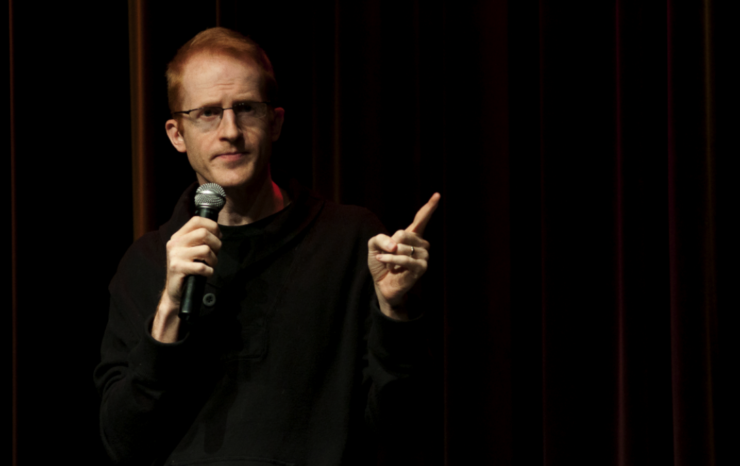Local comics discuss independent marketing in the comedy business
Alex Kemp | Fulcrum Contributor
A GROUP OF comedians have taken things into their own hands with the launch of the All Things Comedy (ATC) Network on Oct. 1.
Spearheaded by American comics Al Madrigal and Bill Burr, the website will serve as a central hub for the 18 comedians involved to host podcasts and announce dates, which can then be easily accessed by fans all over the world.
“In theory, it’s a really exciting idea,” says Alex Wood, an established comedian in Ottawa. “That’s a really direct avenue, straight to your fans. No one is getting in the middle; no one’s taking your money. That’s the other thing with the Internet: no one is going to say anything to you about content.”
One main feature of ATC is that it uses SoundCloud, a free audio distribution website, instead of iTunes, the conventional podcasting platform. This is a much quicker and more efficient route to the comedians and their work.
“This is not a trend—this is how comedy and media will be delivered,” says John Hastings, an Ottawa-born comic who is signed to Comedy Records and noted by The Comedy Network as one of the top five up-and-coming comedians.
“Podcasts and independently released specials are the way of the future,” he says. “Everyone will be jumping on the bandwagon.”
The precedent for this do-it-yourself movement was set by Louis C.K., an internationally recognized comedian who in 2011 chose to release his special Live at the Beacon Theater in a very unusual way. He opted to sell tickets for the live show and a high-definition video download straight off his website using PayPal.
By doing this, C.K. avoided the obvious monetary loss that would have been incurred by selling tickets through a host like Ticketmaster, but also—and perhaps more importantly—he avoided the loss of creative control. If he had gone through a network like Comedy Central or HBO, his performance likely would have been chopped into a 40-minute compilation of the most TV-friendly bits, leaving plenty of great material on the cutting-room floor.
Leaving out the middlemen not only significantly boosted C.K.’s monetary reward, but also helped prove that the individual is much more capable now than ever before. This is where ATC has picked up: leaving the middlemen behind to benefit comedians and fans alike.
Wood brings to light an interesting perspective on the flood of free online comedy.
“It’s never been harder to find a wide audience as a comedian, but it’s never been easier to find your audience as a comedian,” he says.
While at first this might seem like an unwanted compromise, it is really quite the opposite; having a loyal fan base offers a certain type of security and longevity.
However, Wood also acknowledges some complications.
“How do you stand out? How do you produce it? How do you promote it?” he asks. “At the end of the day, you’re still able to put something out that won’t cost you anything, that in theory can be accessed by millions of people.”
While Hastings admits that the industry side of comedy is important because they do the legwork that allows comedians to perform, he emphasizes the importance of trying new things.
“You have to do everything,” he says. “There is no road map in comedy. Run with every idea and try every path.”
This exploration can help to revamp the ways in which comedy is both released and consumed. The Internet offers a variety of different assets that for the most part have been left untouched. Comedy is in a time of transformation, and websites like All Things Comedy and the initiatives of people like Louis C.K. are just the beginning.


